DPharma
The DPharma is a foundational course in pharmaceutical sciences, designed for those aspiring to enter the pharmacy profession.
Spanning two years, the program provides essential knowledge of pharmacology, chemistry, drug formulation, and pharmacy practices.
Graduates are equipped to work as pharmacists in hospitals, retail pharmacies, and pharmaceutical companies, or pursue further studies in pharmacy.
D. Pharma emphasizes practical skills, including dispensing medications, patient counseling, and understanding drug interactions, making it a critical step toward a successful career in the healthcare and pharmaceutical industries.
Some of the most opted courses in India and St. Andrews college or different Engineering college or Management colleges are as follows:-
- Btech
- Btech CSE
- Btech ETCE
- MTech
- BCA
- BBA
- MBA
- MCA
- DPharma – St. Andrews College of Pharmacy
- BPharma – St. Andrews College of Pharmacy
- BArch – St. Andrews College of Architecture
Overview of Diploma in Pharmacy Course
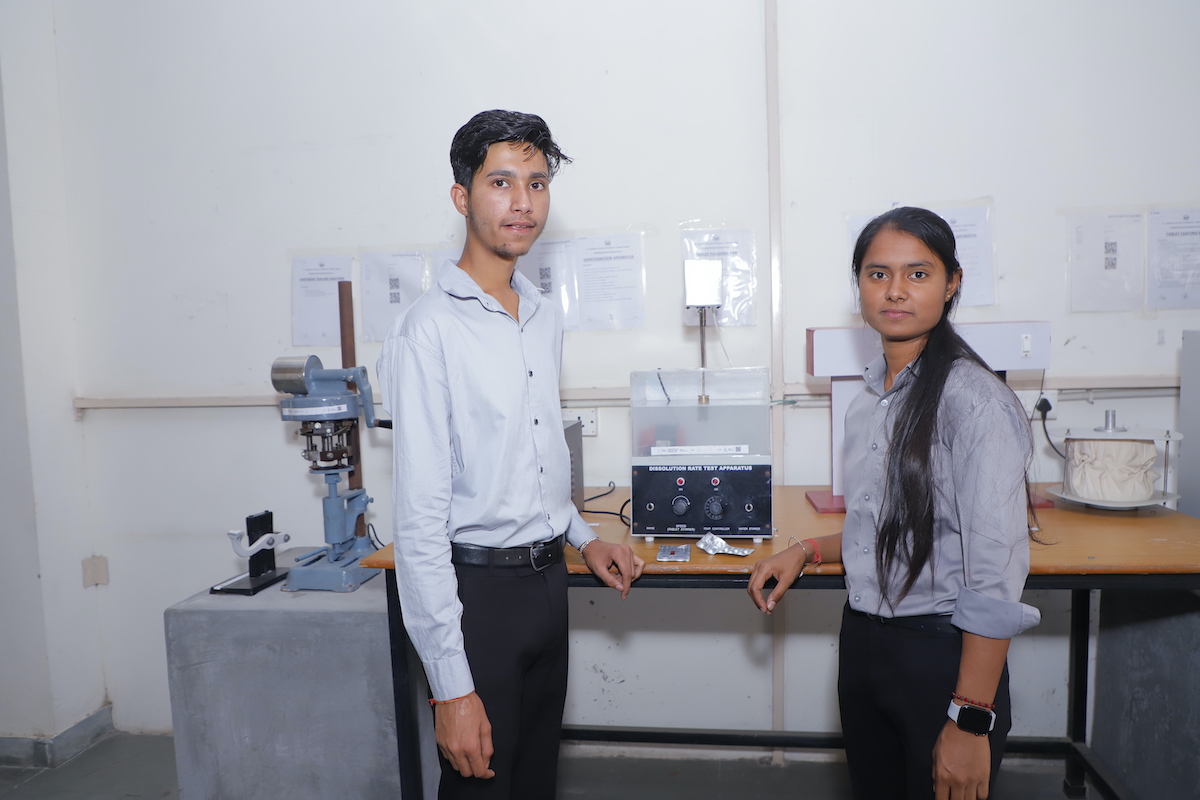
A Diploma in Pharmacy (D.Pharma) is a two-year undergraduate program in the field of pharmacy. It is designed to equip students with the essential knowledge and skills required to work as a pharmacist in various healthcare settings.
Here’s an overview:
Eligibility Criteria:
Educational Qualification: Candidates must have completed their 10+2 education with a focus on science subjects (Physics, Chemistry, and Biology/Mathematics).
Minimum Marks: Generally, a minimum aggregate score of 50% in the 10+2 examination is required, though this may vary by institution.
Course Structure:
Duration: 2 years, divided into four semesters.
Subjects Covered:
- Pharmaceutics: Study of formulation and preparation of drugs.
- Pharmaceutical Chemistry: Chemistry of drugs, including organic, inorganic, and medicinal chemistry.
- Pharmacology: Study of drug action and effects on the human body.
- Pharmacognosy: Study of medicinal drugs derived from plants and natural sources.
- Biochemistry and Clinical Pathology: Understanding the biochemical processes and clinical aspects of drug interaction.
- Human Anatomy and Physiology: Basic understanding of human body structure and functions.
- Health Education and Community Pharmacy: Role of pharmacists in community health and disease prevention.
Practical Training:
Internship: Many programs include a practical training component, where students work in hospitals, pharmacies, or pharmaceutical companies to gain hands-on experience.
Laboratory Work: Emphasis on laboratory-based training for drug formulation, analysis, and quality control.
Career Opportunities:
Pharmacist: Engage in pharmacy practice in retail pharmacies, hospitals, or health clinics, focusing on dispensing medications and advising patients.
Pharmaceutical Companies: Work in drug manufacturing, quality control, marketing, or sales.
Government Sector: Opportunities in regulatory bodies, health departments, or government-run pharmacies.
Higher Studies: Option to pursue a Bachelor of Pharmacy (B.Pharma) or other advanced degrees in the field of pharmacy.
Key Skills Developed:
Attention to Detail: Critical for accurately dispensing medications and ensuring patient safety.
Communication Skills: Essential for interacting with patients and healthcare professionals.
Analytical Skills: Important for understanding drug compositions and their effects.
Ethical Awareness: Understanding the ethical considerations and responsibilities of a pharmacist.
Accreditation and Recognition:
The course is regulated by the Pharmacy Council of India (PCI), ensuring that the curriculum meets the required standards for pharmacy education.
Admission Process:
Entrance Exams: Some institutions may require entrance exams, while others admit students based on their 10+2 results.
Counseling: Admission may also involve a counseling process where students are allocated seats based on merit.
Fees Structure:
Variation: The fees for D.Pharma courses can vary widely based on the institution, with government colleges generally offering lower fees compared to private institutions.
D.Pharma Eligibility Criteria
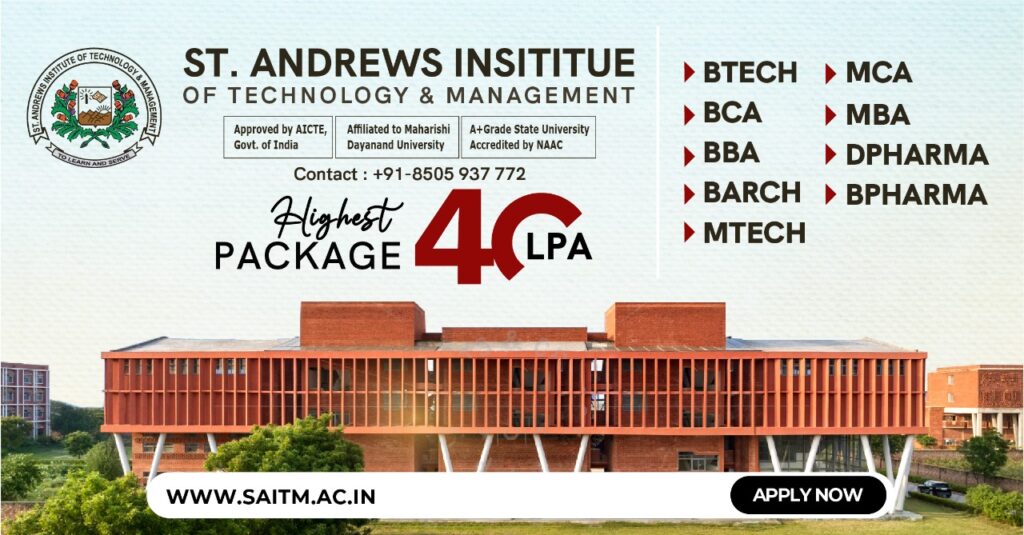
The eligibility criteria for enrolling in a Diploma in Pharmacy (D.Pharma) program generally include the following:
Educational Qualification:
Required Qualification: Candidates must have completed their 10+2 (higher secondary) education from a recognized board.
Subject Requirements: The 10+2 education should be in the Science stream, with mandatory subjects being:
- Physics
- Chemistry
- Biology or Mathematics (some institutions may also consider candidates with only Biology and Chemistry, depending on their specific requirements).
Minimum Marks:
General Category: Typically, a minimum aggregate score of 50% in the qualifying 10+2 examination is required.
Reserved Categories: For candidates belonging to SC/ST/OBC or other reserved categories, the minimum aggregate score may be relaxed, often to around 45%.
Age Criteria:
Minimum Age: Candidates should be at least 17 years old at the time of admission or should reach the age of 17 by the 31st of December in the year of admission.
Entrance Exams (if applicable):
Entrance Requirements: While many institutions admit students based on their 10+2 marks, some may require candidates to appear for specific entrance exams. These exams can be conducted at the state level or by the institutions themselves.
Nationality:
Indian Nationals: The course is primarily open to Indian nationals, but some institutions may offer admission to international students as well.
Medical Fitness:
Some institutions may require candidates to provide a certificate of medical fitness at the time of admission.
Diploma in Pharmacy Admission Process

The admission process for a Diploma in Pharmacy (D.Pharma) typically involves several steps.
Below is an overview of the general admission process:
Research and Application:
Identify Institutions: Start by researching various colleges or universities that offer the D.Pharma program. Consider factors like location, fees, accreditation, and facilities.
Check Eligibility: Ensure that you meet the eligibility criteria, such as educational qualifications, minimum marks, and age requirements.
Application Form: Complete the application form for the institutions you are interested in. Forms are usually available online on the institution’s website or can be filled out in person at the admissions office.
Fee: Pay the required application fee, which may vary by institution.
Entrance Exams (if applicable):
Institution/State-Level Exams: Some colleges or states may conduct entrance exams for D.Pharma admissions. Examples include GPAT (Graduate Pharmacy Aptitude Test) or specific state-level pharmacy entrance exams.
Exam Preparation: If an entrance exam is required, prepare by studying the relevant subjects (Physics, Chemistry, Biology/Mathematics).
Exam Date and Venue: Keep track of the exam date, venue, and other relevant details.
Results: After the entrance exam, results will be announced, and successful candidates may be invited for further rounds.
Merit-Based Admission:
Merit List: Many institutions admit students based on their performance in the 10+2 examination. After receiving applications, colleges will publish a merit list based on the marks obtained in the qualifying exam or entrance test.
Cut-off Marks: Check the cut-off marks or ranks for admission to see if you qualify.
Counseling (if applicable):
Counseling Sessions: In some cases, institutions or states may conduct counseling sessions for seat allocation. Candidates will be invited to participate based on their rank in the merit list or entrance exam.
Document Verification: During counseling, candidates must provide original documents for verification, such as:
- 10+2 mark sheet and certificate
- Identity proof (Aadhaar card, etc.)
- Passport-sized photographs
- Entrance exam scorecard (if applicable)
- Category certificate (if applicable)
Choice Filling: Candidates may be asked to fill in their preferred colleges or courses during counseling.
Seat Allotment: Based on rank, choice, and availability, seats are allotted to candidates.
Admission Confirmation:
Acceptance of Seat: If a seat is allotted, candidates must confirm their acceptance by paying the admission fee within the stipulated time.
Admission Fee Payment: Pay the required admission fee to secure the seat. The fee structure will vary depending on the institution.
Admission Letter: After payment, candidates will receive an admission letter or confirmation, which may include details about the commencement of classes.
Reporting to the College:
Reporting Date: Report to the college on the date specified in the admission letter.
Orientation/Induction Program: Attend the orientation or induction program, if offered, to get acquainted with the course, faculty, and facilities.
Commencement of Classes:
Start of Academic Session: Classes for the D.Pharma program will begin as per the academic calendar provided by the institution.
Medical Examination (if required):
Medical Fitness: Some institutions may require candidates to undergo a medical examination to ensure they meet the health requirements for the course.
D Pharmacy Course Structure and Syllabus

The Diploma in Pharmacy (D.Pharma) program is structured to provide students with a comprehensive understanding of the pharmaceutical sciences. It typically spans two years, divided into four semesters. The curriculum is designed to cover both theoretical and practical aspects of pharmacy to prepare students for a career in the pharmaceutical industry, healthcare, or further studies.
Course Structure:
Year 1 (First Year):
Pharmaceutics I
Introduction to the formulation, preparation, and dispensing of pharmaceutical products. It covers the basics of pharmacy, including the preparation of powders, syrups, ointments, and other dosage forms.
Pharmaceutical Chemistry I
Focuses on inorganic pharmaceutical chemistry, including the study of chemical compounds, their reactions, and their medicinal uses.
Pharmacognosy
The study of drugs obtained from natural sources such as plants, animals, and minerals. It includes the identification, extraction, and testing of these natural products.
Biochemistry and Clinical Pathology
Introduction to the biochemical processes in the human body and how they relate to disease. It includes topics like enzymes, vitamins, and the metabolic pathways.
Human Anatomy and Physiology
Basic understanding of the structure and function of the human body, including organ systems, tissues, and cells.
Health Education and Community Pharmacy
Focuses on the role of pharmacists in community health, disease prevention, and health education.
Year 2 (Second Year):
Pharmaceutics II
Advances the knowledge gained in Pharmaceutics I, focusing on more complex formulations, drug delivery systems, and packaging.
Pharmaceutical Chemistry II
Organic pharmaceutical chemistry, including the study of organic compounds, synthesis, and reactions relevant to drug development.
Pharmacology and Toxicology
Study of the effects of drugs on the human body, including drug actions, interactions, side effects, and toxicity.
Pharmaceutical Jurisprudence
Introduction to the laws and regulations governing the practice of pharmacy courses in India, including the Drugs and Cosmetics Act, Pharmacy Act, and Narcotic Drugs and Psychotropic Substances Act.
Drug Store and Business Management
Covers the principles of business management related to running a pharmacy, including inventory management, accounting, and marketing.
Hospital and Clinical Pharmacy
Focuses on the role of pharmacists in hospitals and clinical settings, including drug distribution, patient care, and medication therapy management.
Practical Training:
Laboratory Work: Each subject typically includes practical sessions where students gain hands-on experience in drug formulation, chemical analysis, pharmacological testing, and more.
Internship/Training: Some institutions may require students to complete a practical training or internship in a hospital or pharmacy setting to apply their theoretical knowledge in real-world scenarios.
D Pharma Syllabus Overview:
First Year Syllabus:
Pharmaceutics I:
- Introduction to different dosage forms
- Metrology
- Packaging of pharmaceuticals
- Extraction processes
- Distillation and filtration methods
Pharmaceutical Chemistry I:
- Acid-base titration
- Redox titration
- Gravimetric analysis
- Limit tests for impurities
- Identification tests for ions
Pharmacognosy:
- Classification of drugs of natural origin
- Morphological study of drugs
- Microscopical characters of plant drugs
- Sources of crude drugs
- Methods of adulteration
Biochemistry and Clinical Pathology:
- Carbohydrates, proteins, and lipids
- Enzymes and their classification
- Blood and urine analysis
- Pathological tests
Human Anatomy and Physiology:
- Cell structure and functions
- Skeletal system and muscular system
- Cardiovascular system
- Respiratory system
- Digestive and excretory systems
Health Education and Community Pharmacy:
- Nutrition and health
- First aid and emergency treatment
- Business management hospital
- Population control
- Epidemiology and public health
- Role of pharmacists in public health
Second Year Syllabus:
Pharmaceutics II:
- Liquid dosage forms
- Semisolid dosage forms
- Suppositories and pessaries
- Pharmaceutical incompatibility
- Sterilization methods
Pharmaceutical Chemistry II:
- Alcohols and phenols
- Ethers and epoxides
- Carboxylic acids and their derivatives
- Amines
- Heterocyclic compounds
Pharmacology and Toxicology:
- General pharmacology
- Drugs acting on the nervous system
- Drugs affecting the cardiovascular system
- Chemotherapeutic agents
- Toxicology basics
Pharmaceutical Jurisprudence:
- Pharmacy Act 1948
- Drugs and Cosmetics Act 1940
- Medicinal and Toilet Preparations (Excise Duties) Act 1955
- Narcotic Drugs and Psychotropic Substances Act 1985
- Consumer Protection Act 1986
Drug Store and Business Management:
- Principles of management
- Inventory control
- Sales promotion
- Accounting methods
- Banking and finance
Hospital and Clinical Pharmacy:
- Drug distribution systems in hospitals
- Pharmacy and therapeutic committees
- Medication errors
- Patient counseling
- Clinical laboratory tests
Assessment and Evaluation:
- Theory Exams: Students are assessed through written exams at the end of each semester.
- Practical Exams: Practical knowledge is evaluated through lab work and practical exams.
- Internal Assessment: Continuous assessment through assignments, quizzes, and class participation.
- Final Year Project/Internship: Some institutions may require a project report or internship evaluation as part of the final assessment.
D.Pharma Specializations
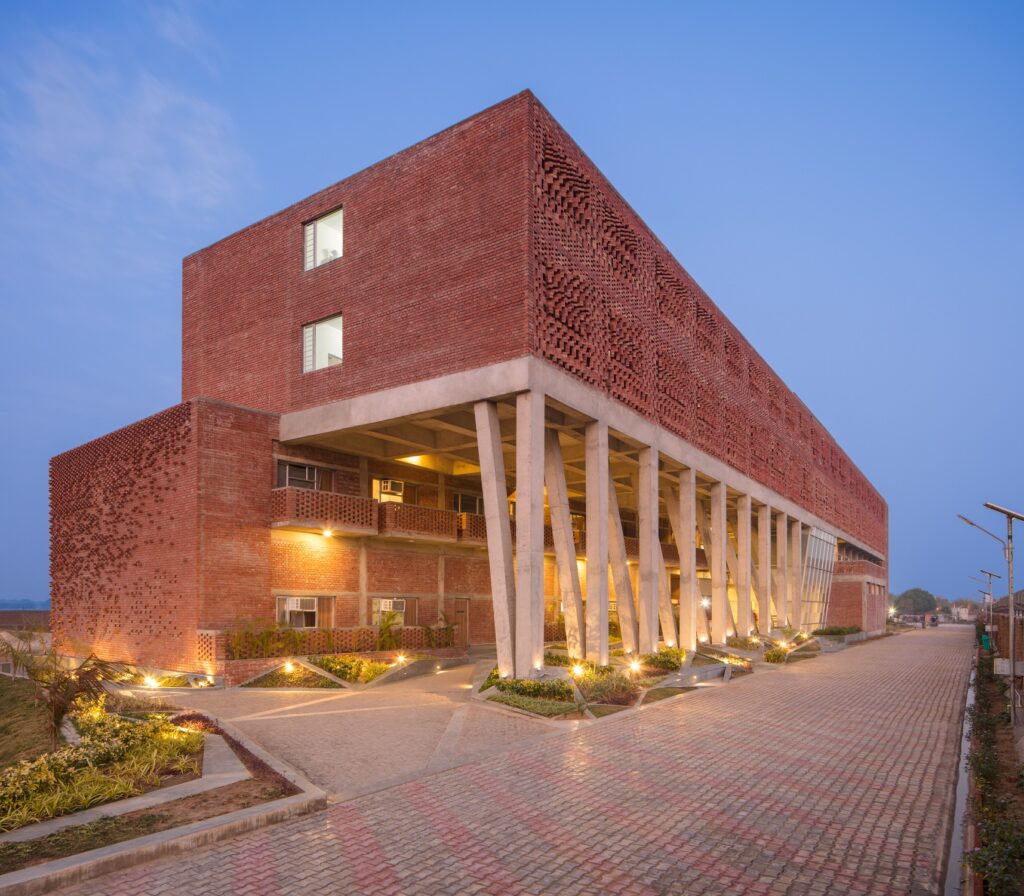
The Diploma in Pharmacy (D.Pharma) is generally a foundational course that covers a broad spectrum of topics within the field of pharmacy. Unlike advanced degrees like B.Pharma (Bachelor of Pharmacy) or M.Pharma (Master of Pharmacy), the DPharma program typically does not offer specific specializations. Instead, it provides a comprehensive introduction to the core areas of pharmacy, including pharmaceutics, pharmacology, pharmaceutical chemistry, and pharmacognosy.
However, after completing the DPharma program, students may choose to specialize in various fields by pursuing further education or gaining experience in specific areas of pharmacy.
Here are some common areas where D.Pharma graduates can specialize:
Pharmaceutical Technology:
- Focus on the technology involved in the formulation and development of pharmaceutical products.
- Involves the study of advanced drug delivery systems, manufacturing processes, and quality control.
Hospital and Clinical Pharmacy:
- Specialization in the management of pharmacy services within hospitals and clinical settings.
- Involves working closely with healthcare professionals to manage medication therapy, patient counseling, and drug distribution systems.
Pharmaceutical Marketing and Sales:
- Focus on the commercial aspects of the pharmaceutical industry, including marketing, sales, and distribution of pharmaceutical products.
- Involves understanding market trends, regulatory aspects, and the promotion of drugs to healthcare professionals.
Pharmacovigilance and Drug Safety:
- Specialization in monitoring and assessing the safety of pharmaceutical products.
- Involves detecting, assessing, and preventing adverse drug reactions and ensuring drug safety.
Community Pharmacy:
- Focus on the role of pharmacists in community settings, such as retail pharmacies.
- Involves dispensing medications, providing health advice, and managing chronic diseases.
Regulatory Affairs:
- Specialization in ensuring that pharmaceutical products meet all regulatory requirements.
- Involves working with government agencies and regulatory bodies to ensure compliance with laws and guidelines.
Pharmaceutical Quality Control and Quality Assurance:
- Focus on ensuring the quality and safety of pharmaceutical products through testing and compliance with standards.
- Involves working in laboratories to conduct tests and ensure that products meet regulatory specifications.
Pharmaceutical Research and Development:
- Involves participating in the research and development of new drugs and pharmaceutical products.
- Specialization in formulation development, clinical trials, and innovation in drug delivery systems.
Herbal and Ayurvedic Pharmacy:
- Specialization in the preparation and dispensing of herbal and Ayurvedic medicines.
- Involves studying traditional medicine systems and their integration with modern pharmacy practices.
Industrial Pharmacy:
- Focus on the large-scale production of pharmaceuticals in manufacturing plants.
- Involves working in the production, packaging, and distribution of pharmaceutical products.
D. Pharmacy Program Career Opportunities and Scope

A Diploma in Pharmacy (D.Pharma) opens up various career opportunities in the pharmaceutical industry, healthcare, and related sectors. The program provides a foundational understanding of pharmacy, preparing graduates for a range of roles.
Here’s an overview of the career opportunities and scope after completing a D.Pharma:
Pharmacist:
- Community Pharmacist: Work in retail pharmacies, where you’ll dispense medications, counsel patients on the proper use of prescriptions, and provide over-the-counter health advice.
- Hospital Pharmacist: Work in hospital settings, managing the medication therapy of patients, dispensing drugs, and collaborating with healthcare professionals to ensure safe and effective medication use.
Pharmaceutical Industry:
- Production and Manufacturing: Work in the production and manufacturing units of pharmaceutical companies, ensuring the quality and consistency of drug products.
- Quality Control and Assurance: Involve in testing pharmaceutical products to ensure they meet the required standards of quality and safety.
- Research and Development (R&D): Assist in the research and development of new drugs, formulations, and drug delivery systems.
Sales and Marketing:
- Medical Representative: Promote and sell pharmaceutical products to healthcare professionals, including doctors, hospitals, and pharmacies.
- Pharmaceutical Sales Executive: Work with pharmaceutical companies to drive the sales of their products in various regions.
Regulatory Affairs:
- Regulatory Officer: Work with pharmaceutical companies to ensure that their products comply with all regulatory requirements. This role involves preparing documentation and liaising with regulatory bodies.
Pharmacovigilance:
- Drug Safety Associate: Monitor the safety of drugs post-market, tracking adverse effects and ensuring that pharmaceutical products remain safe for consumers.
Academia and Education:
- Lecturer/Instructor: Teach pharmacy subjects in educational institutions offering D.Pharma or other pharmacy-related courses.
- Lab Technician: Work in educational institutions or research facilities, assisting in laboratory experiments and practicals related to pharmacy education.
Entrepreneurship:
- Pharmacy Owner: Open and manage your own pharmacy or drugstore, offering prescription medications, over-the-counter drugs, and health products.
- Wholesale Business: Engage in the wholesale distribution of pharmaceutical products, supplying to retail pharmacies and hospitals.
Government Jobs:
- Drug Inspector: Work with government health departments to monitor the quality of drugs being manufactured and sold. This role involves inspecting drug manufacturing facilities and ensuring compliance with regulations.
- Pharmacist in Government Hospitals/Clinics: Serve as a pharmacist in government-run hospitals, primary health centers, or clinics, dispensing medications and managing pharmacy services.
Health and Wellness Sector:
- Health Advisor: Provide health and wellness advice in clinics, wellness centers, or corporate health programs, focusing on the use of medications and health supplements.
- Nutritionist/Health Consultant: Offer guidance on health supplements and over-the-counter medications, working in wellness centers or as an independent consultant.
Higher Education Opportunities:
- Bachelor of Pharmacy (B.Pharma): Pursue a B.Pharma degree to deepen your knowledge and open up more advanced career opportunities in the field.
- Specialized Courses: Consider enrolling in specialized courses or certifications in areas like clinical research, pharmacovigilance, or regulatory affairs to enhance your career prospects.
Scope and Growth Potential:
- Rising Demand: With the growing healthcare industry and the increasing need for qualified pharmacists, the demand for D.Pharma graduates is expected to rise.
- Career Advancement: Starting as a pharmacist or technician, you can advance to higher roles such as production manager, quality assurance officer, or even enter administrative and leadership positions with experience and further education.
- Global Opportunities: D.Pharma graduates can find job opportunities not only in India but also abroad, particularly in countries with a growing pharmaceutical and healthcare sector.
- Lucrative Salaries: While starting salaries may vary, experienced professionals in the pharmaceutical industry, especially those in sales, marketing, and regulatory affairs, can earn competitive salaries.
Top Diploma Pharmacy Colleges in India
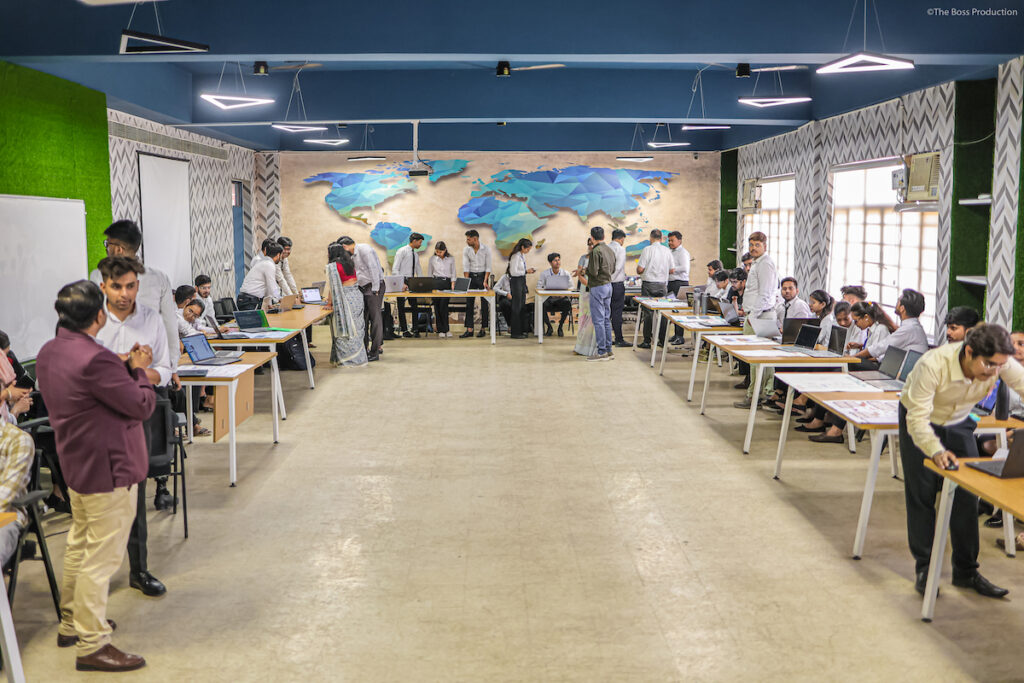
Here are some of the top institutions in India that offer the Diploma in Pharmacy (DPharma) program:
St. Andrews College of Pharmacy (SACP), Gurgaon
- Overview: A prestigious institution offering a well-rounded pharmacy education with a focus on practical skills.
- Affiliation: Pharmacy Council of India (PCI), Haryana State Board of Technical Education (HSBTE)
- Facilities: State-of-the-art laboratories, experienced faculty, and a strong placement record.
Jamia Hamdard, New Delhi:
- Overview: Known for its strong emphasis on pharmaceutical education and research, Jamia Hamdard offers high-quality education in pharmacy.
- Recognition: Recognized by the Pharmacy Council of India (PCI).
- Facilities: Modern labs, a strong research environment, and industry linkages.
Delhi Institute of Pharmaceutical Sciences and Research (DIPSAR), New Delhi:
- Overview: DIPSAR is one of the leading institutes in India for pharmaceutical education, offering a robust D.Pharma program.
- Affiliation: University of Delhi.
- Facilities: Well-equipped laboratories, a strong focus on research, and experienced faculty.
L.M. College of Pharmacy, Ahmedabad:
- Overview: One of the oldest pharmacy colleges in India, offering quality education and strong industry connections.
- Affiliation: Gujarat Technological University.
- Facilities: Extensive library, modern labs, and active placement cell.
Institute of Chemical Technology (ICT), Mumbai:
- Overview: ICT is renowned for its advanced pharmaceutical education and research programs, including D.Pharma.
- Recognition: Recognized by PCI and offers cutting-edge research opportunities.
- Facilities: World-class research facilities, industry partnerships, and strong faculty.
JSS College of Pharmacy, Mysore/Ooty:
- Overview: Part of the JSS Academy of Higher Education & Research, this college is known for its strong academic programs in pharmacy.
- Recognition: Accredited by PCI and NAAC.
- Facilities: Well-equipped labs, research opportunities, and strong placement support.
Poona College of Pharmacy, Pune:
- Overview: Affiliated with Bharati Vidyapeeth University, it’s known for its quality pharmacy education and research.
- Recognition: Accredited by PCI and AICTE.
- Facilities: Extensive research labs, experienced faculty, and good placement record.
Banaras Hindu University (BHU) Institute of Medical Sciences, Varanasi:
- Overview: One of the most respected universities in India, offering a solid D.Pharma program through its pharmacy department.
- Recognition: Recognized by PCI and NAAC.
- Facilities: Well-established labs, research facilities, and a strong alumni network.
Jamia Millia Islamia, New Delhi:
- Overview: Offers a well-rounded DPharma program with strong academic and practical components.
- Recognition: Accredited by PCI and NAAC.
- Facilities: Modern labs, experienced faculty, and good industry connections.
Al-Ameen College of Pharmacy, Bangalore:
- Overview: Known for its quality education in pharmacy with a focus on research and practical skills.
- Affiliation: Rajiv Gandhi University of Health Sciences.
- Facilities: Advanced labs, research opportunities, and active placement support.
D Pharma vs B Pharma
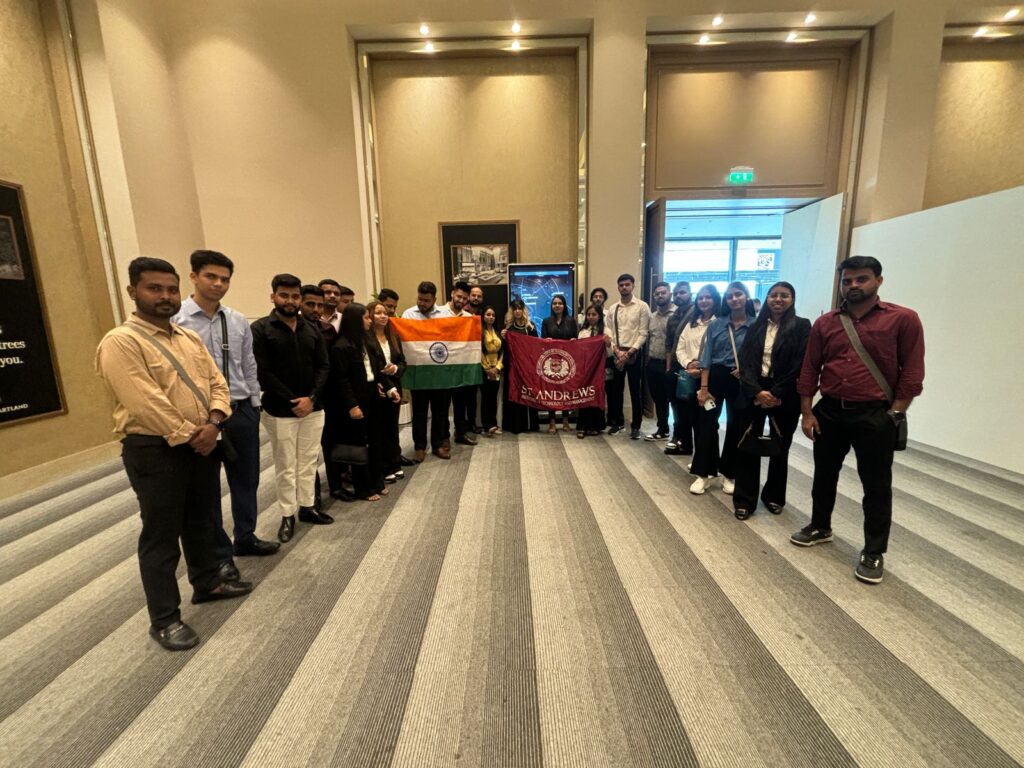
| Criteria | D. Pharma (Diploma in Pharmacy) | B. Pharma (Bachelor of Pharmacy) |
| Full Form | Diploma in Pharmacy | Bachelor of Pharmacy |
| Duration | 2 years | 4 years |
| Eligibility | 10+2 (Science with Physics, Chemistry, and Biology/Mathematics) | 10+2 (Science with Physics, Chemistry, and Biology/Mathematics) |
| Course Level | Undergraduate Diploma | Undergraduate Degree |
| Focus Area | Basics of Pharmacy and dispensing drugs | In-depth knowledge of pharmacy, drug design, and development |
| Higher Education Options | B. Pharma or lateral entry to the 2nd year of B. Pharma | M. Pharma, Pharm.D, or MBA in Pharmaceutical Management |
| Job Opportunities | Pharmacist, Medical Representative, Hospital Dispenser | Pharmacist, Clinical Researcher, Drug Inspector, Medical Representative |
| Career Scope | Entry-level positions in pharmacy and healthcare | Advanced positions in the pharmaceutical industry, clinical research, quality control |
| Regulatory Body | Pharmacy Council of India (PCI) | Pharmacy Council of India (PCI) |
| Average Starting Salary | ₹2 – ₹3 lakhs per annum | ₹3 – ₹6 lakhs per annum |
| Practical Exposure | Focused on practical training in dispensing | Includes practical training in drug formulation, quality control, and clinical trials |
| Pharmacy License | Eligible for obtaining a pharmacist license | Eligible for obtaining a pharmacist license |
D Pharma Course Fees

Here is a list of colleges in India offering D.Pharma courses along with their fees:
St. Andrews College of Pharmacy (SACP), Gurgaon
- Fees: ₹78,500 per year
Jamia Hamdard University, New Delhi
- Fees: ₹90,000 per year
Poona College of Pharmacy, Pune
- Fees: ₹1,25,000 per year
NIPER, Mohali
- Fees: ₹75,000 per year
L. M. College of Pharmacy, Ahmedabad
- Fees: ₹30,000 per year
JSS College of Pharmacy, Mysore
- Fees: ₹1,50,000 per year
Bombay College of Pharmacy, Mumbai
- Fees: ₹95,000 per year
FAQs
What is D.Pharma?
D.Pharma, or Diploma in Pharmacy, is a 2-year undergraduate program that focuses on the basic principles of pharmaceutical science and healthcare practices. It prepares students for careers in the pharmaceutical industry or as pharmacists.
What are the eligibility criteria for D.Pharma?
To be eligible for D.Pharma, candidates must have completed their 10+2 (or equivalent) education in the science stream with Physics, Chemistry, and Biology/Mathematics as core subjects. The minimum required percentage varies by institution. The pharmacy D Pharma duration of two years.
Is there an entrance exam for D.Pharma admission?
Admission to D.Pharma programs may be based on merit or entrance exams, depending on the institution. Common entrance exams include GPAT, CET, and state-level exams.
What is the course duration for D.Pharma?
The D.Pharma course is of 2 years duration, divided into 4 semesters. There is also a mandatory internship or practical training after the course.
What are the key subjects covered in DPharma?
Major subjects include:
- Pharmaceutical Chemistry
- Pharmacognosy
- Pharmacology and Toxicology
- Biochemistry
- Human Anatomy and Physiology
- Hospital and Clinical Pharmacy
What are the career options after completing DPharma?
Graduates can pursue various career options, such as:
- Pharmacist in hospitals, retail, or clinics
- Pharmaceutical companies (production, quality control, marketing)
- Drug inspector or government health programs
- Further studies like B.Pharma or Pharm.D
Can I open my own pharmacy after DPharma?
Yes, after completing DPharma, you can register as a pharmacist and open your own pharmacy/medical store.
What is the salary range for DPharma graduates?
Entry-level salaries for DPharma graduates range between ₹2.5 to ₹4 lakh per annum. This can increase with experience, location, and the type of employment (hospital, industry, retail pharmacy).
Which is better, B Pharma or DPharma?
B.Pharm is better for those seeking a comprehensive career in pharmacy, offering more job opportunities, higher salaries, and eligibility for postgraduate studies. DPharma is a shorter course focused on entry-level positions like pharmacists in hospitals or retail, with fewer career advancement options.
Is D Pharma equal to doctor?
No, DPharm (Diploma in Pharmacy) is not equivalent to being a doctor. DPharm graduates are trained as pharmacy technicians or pharmacists, responsible for dispensing medications and advising on their use. While they are healthcare professionals, they do not have the qualifications or authority to diagnose or treat patients like doctors.
What is the salary of DPharm in India?
The average salary of a DPharm graduate in India typically ranges between ₹2 to ₹4 lakh per annum for entry-level positions, such as retail pharmacists or hospital dispensary roles. With experience, the salary can increase, reaching up to ₹6 lakh per annum or more depending on the location and job profile.
Can I pursue higher education after DPharma?
Yes, after completing DPharma, you can pursue B.Pharma (Bachelor of Pharmacy), which provides advanced knowledge and broader career opportunities.
What is the scope of DPharma abroad?
DPharma graduates can explore opportunities abroad, especially after gaining some experience. However, additional licensing exams may be required to work as a pharmacist in foreign countries.
What is the fee structure for DPharma?
The fee for D.Pharma varies by institution but generally ranges from ₹50,000 to ₹1.5 lakh per year in India, depending on whether it’s a government or private college.
What is the role of a pharmacist after DPharma?
Pharmacists dispense medications, provide patient consultations, manage pharmacy operations, and ensure compliance with pharmacy laws, while helping patients understand their medications and potential side effects.




